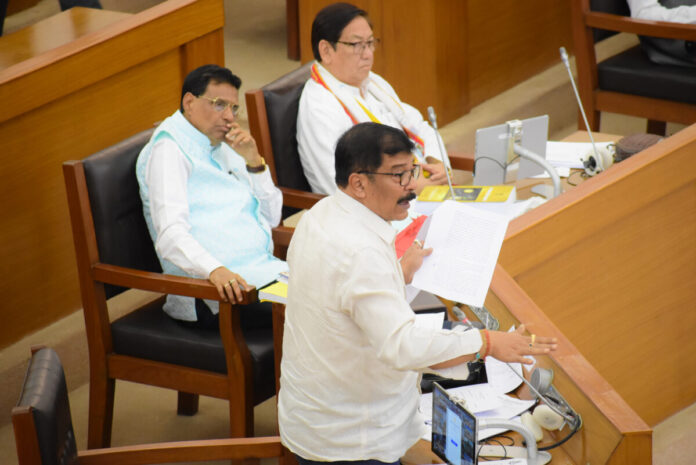Tripura Congress MLA Sudip Roy Barman has slammed the Communist Party of India (Marxist) for boycotting the ongoing Assembly session, calling the decision “shameful” and a betrayal of the state’s democratic principles. He has urged Chief Minister Manik Saha to intervene and ensure that the opposition plays its role in legislative proceedings.
Barman has accused CPIM of neglecting the people’s concerns by refusing to participate in crucial discussions. He has argued that the Assembly is a platform for elected representatives to voice public grievances, debate policies, and hold the government accountable. By staying away, CPIM has weakened the democratic process and deprived Tripura’s citizens of their right to representation.
The Congress leader has claimed that CPIM’s boycott reflects its inability to offer constructive opposition. He has said that instead of engaging in debates on governance and policy failures, the party has chosen to walk away, proving that it lacks the political will to fight for the people. He has emphasized that disagreements should be settled through discussion, not through avoidance.
Barman has pointed out that crucial issues, including unemployment, rising prices, and law and order, require urgent deliberation. He has insisted that the opposition has a duty to raise these concerns within the Assembly and challenge the government’s policies. CPIM’s absence, he has argued, is not a sign of protest but an abdication of responsibility.
He has also accused the CPIM of engaging in political theatrics instead of constructive politics. He has said that the party’s decision to boycott the Assembly is an attempt to remain relevant despite losing popular support. He has criticized CPIM leaders for choosing disruption over meaningful engagement, adding that this move will only alienate voters further.
Meanwhile, the ruling BJP has taken advantage of CPIM’s absence by pushing its legislative agenda without much opposition. The Assembly has continued to function, passing bills and discussing development projects with minimal resistance. Political observers have noted that CPIM’s boycott has given the government an unchecked advantage.
The Congress MLA has reiterated that opposition parties must participate in governance, regardless of political differences. He has said that walking out of the Assembly does not solve issues but only weakens the democratic process. He has urged the Chief Minister to facilitate dialogue and ensure that all parties remain engaged in legislative affairs.
Several political analysts have echoed Barman’s views, stating that a strong opposition is crucial for a functioning democracy. They have pointed out that while CPIM has the right to protest, it must find ways to do so without abandoning legislative responsibilities. They have also suggested that the party’s boycott could backfire, as voters may see it as a failure to perform its duties.
Local residents have expressed mixed reactions to CPIM’s move. Some have supported the boycott, arguing that the government has ignored opposition voices, leaving them with no choice but to take extreme measures. Others have criticized CPIM, saying that elected representatives should fight from within the Assembly instead of refusing to participate.
With the state facing multiple challenges, including economic distress and governance issues, opposition parties have a vital role to play. Congress leaders have insisted that CPIM must rethink its strategy and return to the Assembly to ensure that the government remains accountable. Barman has reaffirmed that the opposition cannot afford to remain silent when people are struggling with pressing concerns.
As the political standoff continues, all eyes are on the Chief Minister and whether he will take steps to bring CPIM back to the Assembly. The coming days will determine whether dialogue prevails or if the impasse deepens further, affecting the political climate in Tripura.




